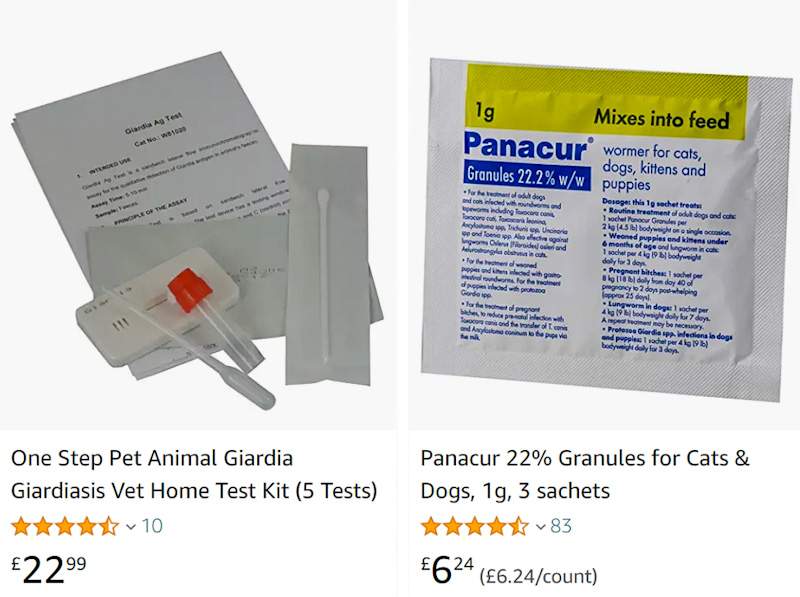There is a lot of discussion on the Internet about domestic cat smelly poop😒. An unpleasant topic but one that needs to be addressed, nonetheless. There are many potential reasons for smelly poop. One reason is that the faeces are not, in fact, particularly smelly but the cat’s caregiver is sensitive to smell. They believe that their cat is producing smelly poop, but they aren’t. You have to tick that box first. What’s the standard for degree of smell!

Some causes
My book on home treatments tells me that diarrhoea which smells rancid, or foul is due to inadequate digestion with fermentation. And diarrhoea which smells putrid is likely due to intestine infection and bleeding in the small bowel.
Other causes might be low quality food, litter tray issues which allows the smells to be more obvious, food intolerance, which is linked to inadequate digestion above, as some examples.
If in doubt, see a vet please.
Giardia
One strong possibility which appears to be neglected sometimes on veterinary websites is the presence of a tiny protozoan endoparasite called Giardia. It is present in people and animals, and it is particularly linked to smelly poop. It is zoonotic.
“Giardia is not a “worm”, bacteria or virus.” – VCA Hospitals
Prevalence of Giardia
And its presence in domestic cats is not uncommon. Taking the United States of America, the prevalence of this intestinal infection varies between the 50 states. In Tennessee, according to a study, between 20-25% of domestic cats have this parasite (1 in 5 to 1 in 4). In other US states the prevalence is as low as 0-4% (Nevada, for example).
The prevalence of the disease is dependent upon the efficacy of the test identifying it. You will see wide variation in US-based studies. A major study published online: Prevalence of Giardia in Symptomatic Dogs and Cats throughout the United States as Determined by the IDEXX SNAP Giardia Test*, reveals that 10.8% of tested cats had the disease and 15.6% of dogs had it.
Thoughts of a breeder
A Maine Coon breeder in the UK, Rudycats, emphasised in a blog article on their website that smelly poop is often not caused by diet but by Giardia. It is a point well made. Breeders have intense, first-hand experience of these matters.
She changed from a raw food diet to commercially prepared foods because the quality of the raw meat supplied was suspect. She could not rely on a supply of decent quality meat and poor quality can cause serious health issues even death. This supports the veterinarians’ point of view that cat owners should avoid making their own raw cat food. There are other issues such as contamination with pathogens, bacterial contamination, cross contamination and storage problems.
Treating Giardia
The good thing about Giardia is that you can test for it at home if you feel up to it using a one-step pet Giardiasis home test kit which you can buy on Amazon. And you can also treat your cat without a prescription using Panacur pills or granules. Although Giardia appears to be in faeces intermittently making it harder to test accurately. It may be wise to treat a cat as a way of diagnosing (if it cures smelly poop your cat had Giardia) provided there are limited or no side effects from Panacur. Check with your vet.

You can use a five-day course of treatment and if that doesn’t work you can go for a second five-day course and finally antibiotics if needs be. The point is that it might be sensible to check for Giardia before blaming the quality of cat food for smelly poop and even other causes unless they are obvious.
Raw may cause not cure problems
It’s interesting to note that some cat caregivers and breeders have deliberately changed over from commercially prepared dry and wet cat food to raw cat food in an attempt to reduce digestion problems. Raw diet might be beneficial, and I have read that it is beneficial sometimes in respect of resolving IBD for instance.
However, a raw diet can contribute to these problems.
Zoonotic
Giardia is zoonotic which means it can be transmitted from animal to human and vice versa but my research indicates it might be quite rare, but some strains can affect both humans and cats according to CDC in the US. Can dogs transmit it to humans and cats? It is unclear to me how much of a risk this is.

